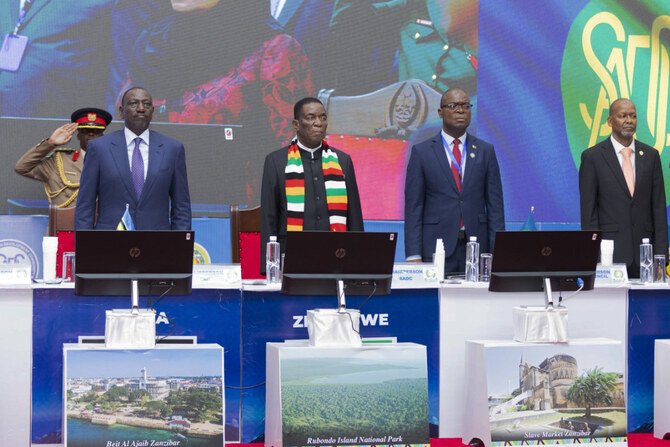On Saturday, leaders from eastern and southern Africa called for an immediate ceasefire in eastern Congo. Rebel groups are threatening to overthrow the government. The leaders also urged President Felix Tshisekedi to engage in direct talks with the rebels.
Tshisekedi, who joined the summit via videoconference from Dar es Salaam, Tanzania, has previously refused to negotiate with the M23 rebels. He believes they aim to exploit Congo’s mineral wealth. The M23 is suspected of receiving support from Rwanda.
Summit calls for dialogue with all parties
At the summit’s close, a statement urged the resumption of “direct negotiations and dialogue with all parties, both state and non-state”, including M23. The rebels had taken control of Goma, the largest city in eastern Congo. This followed clashes that left nearly 3,000 dead and displaced hundreds of thousands, according to the UN.
The summit, which brought together leaders from the East African Community (EAC) and the Southern African Development Community (SADC), was significant. Rwanda and Congo are both members of the EAC, and the SADC includes countries from Congo to South Africa.
Tensions between Rwanda and South Africa over Congo conflict
Rwandan President Paul Kagame and South African President Cyril Ramaphosa attended the summit. Ramaphosa has upset Rwanda by deploying South African troops to fight the M23 rebels under the SADC banner.
Rwanda criticises the presence of SADC peacekeepers, claiming they have worsened the conflict in North Kivu. Kagame argues that the SADC troops cannot be considered peacekeepers, as they are fighting alongside Congolese forces against the rebels.
The M23 rebels are said to be supported by around 4,000 Rwandan troops. Congolese forces are backed by regional peacekeepers, UN troops, militias, and Burundian soldiers. Their focus now is to prevent the rebels from advancing towards Bukavu, the capital of South Kivu province.
Support for dialogue and peaceful resolution
Kenyan President William Ruto, speaking at the summit, urged for a peaceful resolution: “The lives of millions depend on our ability to navigate this complex and challenging situation with wisdom and clarity.”
Ruto, who chairs the East African Community, stressed that dialogue “is not a sign of weakness.” He called on all parties to put aside their differences and engage in constructive talks.
Congo rebels and government face growing pressure
The latest M23 offensive is drawing concern. It mirrors the rebels’ previous capture of Goma and breaks a 2024 ceasefire brokered by Angola. Some analysts fear that the rebels are now linking their actions to broader calls for better governance and reforms. They have even threatened to march on Kinshasa, some 1,600 kilometres (1,000 miles) away.
The Congo River Alliance, a coalition of rebel groups, issued a letter to the summit. They said they were fighting against a government that “flouts republican norms” and poses a “serious threat” to the Congolese people. The letter, signed by rebel leader Corneille Nangaa, said their revolution is “national” and includes people from all ethnic backgrounds.
The rebels also expressed openness to direct dialogue with the Congolese government. However, they face growing pressure to leave Goma.
In addition to calling for the reopening of Goma’s airport, the summit called for a plan to withdraw “uninvited foreign armed groups” from Congo’s territory. Another meeting, in Equatorial Guinea, also urged the immediate withdrawal of Rwandan troops from Congo. They also called for the airport’s reopening to allow humanitarian aid to reach the region.
